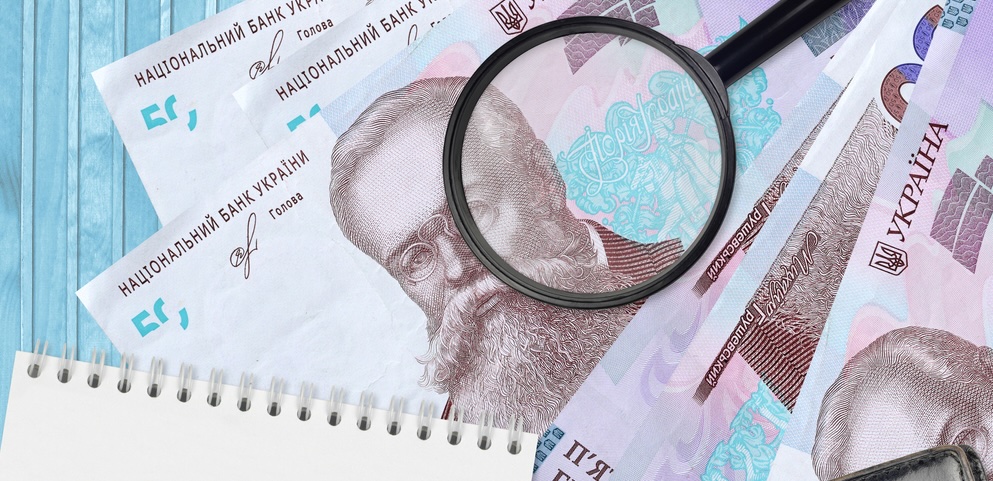There is blood seeping from under an otherwise ordinary shed door in the city. This possible sign of a crime sets in motion the plot of The Stolen Heart, Andrey Kurkov’s second installment in the delightful series of Kyiv mysteries, set nearly 100 years ago and following the low-brow exploits of a young policeman, Samson Kolechko (“The Ring”). But what is a century in the grand scheme of history?
This is Kyiv shortly after the Russian Revolution, under the rule of the Bolsheviks. Rebellious elements still murmur in the air—that turned out to be part of the mystery of the first novel in the series, The Silver Bone, which opened with crisis—personal and national. There is indiscriminate slaughter and chaos on the streets of Kyiv, and a Cossack kills Samson Kolechko’s father as he and Samson walk down the street. Samson comes close to death himself in that same moment, but the Cossack’s saber misses, so Samson loses an ear rather than his life. This loss of an appendage, though, becomes his defining feature for the series. It adds an unexpected element of the supernatural to an otherwise historically grounded tale: the sliced ear can still hear. In fact, when separated from its owner, even by some distance, the sliced ear can effectively eavesdrop on conversations, which offers occasional advantages.
In The Silver Bone, the newly one-eared and terrified Samson is a rookie policeman in a Kyiv in shock, emerging from the Revolution. He also meets a love interest, the idealistic young Bolshevik Nadezhda. Furthermore, he learns to work with his new colleagues at the police station and solves his first major case. Not bad for the young former university student. In the process, we see Samson mourning his old life—missing his parents and sister, all of them now dead—while discovering the promises of a new one. Yes, it seems, even here happiness may just be possible after all. The Stolen Heart picks up on all these plot threads, building further, but never in a linear or predictable pattern. What would be the fun in that?
The mystery of the blood under the shed is quickly resolved: It’s porcine, not human. There’s no murder at least. But there’s a crime nevertheless, and people may yet die for it, as a conversation early in the novel poignantly and absurdly makes clear:
“If we go back now, we’ll need to take one of them with us, for further enquiry,” Abyazov said.
“Enquiry into what?” the woman asked.
“Into the illicit slaughter of livestock and violation of the decree of the ExProFooCom banning private trade in meat,” Abyazov rapped out.
“Never heard of it,” the woman responded.
What was legal yesterday might not be legal today—cue the newly criminalized trade in meat in the city, a case that Kurkov found in reading actual historical archives. Reality, we are reminded, can be stranger than fiction—which is also why reality sometimes makes for the best fiction.
The quest to understand a new reality when the old one has disappeared has been a motivating force in Kurkov’s own writing and, through him, in the life of his protagonists. In her review of The Silver Bone, novelist Amanda McCrina observes:
Above all, Kurkov seems interested in the question of what happens to fairly average people leading fairly mundane lives when the world as they know it ends. Samson, a former electrical engineering student, seeks refuge in the order and rule of law promised by the new Bolshevik authorities.
The result is an unusual whodunit—a mystery of sorts, but the mystery is just along for the ride, trying to keep up with the chaos of the mundane that takes the wheel in The Stolen Hart, just as it did in the first book in the series. How does one survive and thrive in Kyiv under this new normal? Everything is uncertain, and danger looms at every corner and from every source. The laws themselves operate by a reversal of previous norms. The murder of Samson’s father was not punished, and neither was Samson’s loss of an ear (or, rather, the slicing off of the ear—since he still has it in a little tin box). Yet now any unauthorized slaughter of pigs deserves the attention of multiple detectives, who are ordered to stay on the case until they can solve it.
Instead of a crime board or map of modern detectives, Samson acquires an elaborate diagram of a pig carcass. As the investigation unfolds, he keeps adding names to those who had purchased portions of illicit meat. But then comically logical discussions arise: Are the intestines considered meat—and therefore are likewise illegal for trading? And what about other entrails, like kidneys? Who owns the heart? And who’s going to break this awkward news to the rogue mystery-meat pie sellers in the markets? What’s in those pies anyway, and do you really want to know?
Sliced and dried crispy pigs’ ears, in fact, nicely punctuate the tale. They are a Chinese delicacy that a friend of Samson’s occasionally brings by, dutifully wrapped up in newspapers, raising the question: But is this meat? Are these ears ethically sourced, as far as the all-powerful ExProFooCom is concerned? Who knows—and the absurdity of these moments is the point. Kurkov is no satirist, but the exquisite twists and turns on which the tale takes us along in Boris Dralyuk’s masterful translation betray more than a mere echo of another Kyivan literary master.
A century ago this year, another Kyiv-born writer, Mikhail Bulgakov, wrote an unusual whodunit about hearts—A Dog’s Heart. Set in Moscow, that tale involves a medical research doctor who continues operating his private practice (and conducting his own research experiments) in his luxurious apartment after the Revolution, as if nothing had happened. Hilarity ensues, as various bureaucrats parade past his doors attempting to persuade him to do such proper newly Soviet things as welcome the densification of his large apartment—meaning, allowing multiple other people to move in with him.
Although Bulgakov was a satirist to the core, he, too, seemed to have recognized the need to get on with life. And so his doctor continues to operate, heal, and prescribe. And he spends every evening he can at the opera. What can ordinary people do in the face of an evil and incompetent regime? The question occupies prominent space in the background of Bulgakov’s novels. And yet the answer turns out to be relatively simple: Do good and live well, if you can, even there—and even then. Still, speaking the truth matters no less—even there, even then. Bulgakov was no less convinced of this than is Kurkov.
A dog’s heart is mended in Bulgakov’s tale. In Kurkov’s, minding the stolen pig’s heart matters less than Samson’s very human one. As the tale follows his investigation, his own romance with Nadezhda moves ahead, too. Even in chaos, even in instability, even in the midst of a revolution that has barely concluded, people fall in love after all. Affairs of the heart—human, not porcine—are the real priority. This is what civilizations are made of. The Bolsheviks’ latest meat-policing schemes are merely a dead end, a distraction from what really matters in the grand scheme of history. Even as he is following orders and doing his job, Samson understands this.
In this mystery, what seems most visible is a distraction. The meat-selling crime in all its absurdities matters less than the search for love and life—the ordinary, boring sorts. Except, it is impossible to read this novel right now and not think of the crime scene in which its author resides—Kyiv under fire, as it has regularly been since February 24, 2022. It was that night that, under Vladimir Putin’s orders, Russian tanks rolled over the border and all-out war began.
Kurkov’s modern-day Kyiv, in other words, is less safe than Samson Kolechko’s revolution-roiled city. The pursuit of justice is even more elusive, as civilians die in their beds, in residential apartment buildings—or on church property. But still, as long as writers continue writing, hope abides. For what can be more hopeful than the task of writing a series of whodunits, thus promising the reader: There is more joy yet in store for you. The next book is coming. Just wait until next year!

